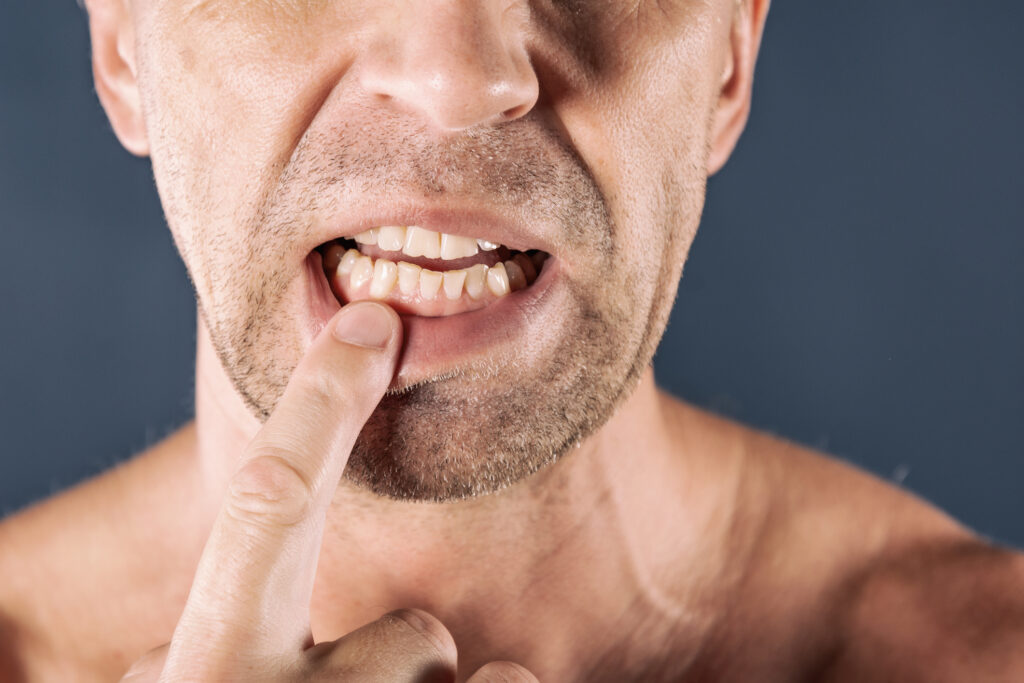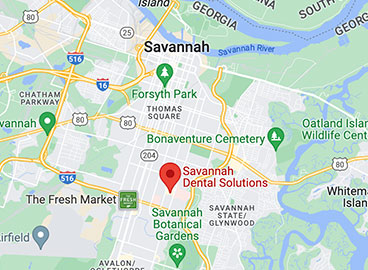Many people who have gum disease are not aware of it. Gum disease is a bacterial infection of the gums. It is relatively painless in the early stages and the other symptoms are mild and not very noticeable. So how do you know if you have gum disease?

There are a few signs and symptoms of gum disease that are detectable when you know what to look for. Consider whether or not you have noticed any of the following indications of gum disease.
Bleeding Gums
Do you notice some blood in the sink when you spit after brushing your teeth? This is not normal. You could be brushing too hard, but more likely it’s a sign of gum disease. Flossing your teeth for the first time in a long time could cause some slight bleeding, but just regular brushing and flossing should not produce blood. Infected gums bleed because they are inflamed from bacterial infection. Unless you have a mouth injury or unless a child has lost a baby tooth, healthy gums should not bleed.
Red or Swollen Gums
Your gums don’t have to be bleeding to show signs of gum disease. You may notice that your gums appear redder than normal rather than the light pink color they should be. This is a sign of inflammation, a side effect of gum disease. Your gums may also appear swollen or puffy, which is also due to the bacterial infection that is gum disease. If you floss or brush in the places where your gums are swollen, it’s possible that they could start to bleed.
Bad Breath
Gum disease can cause you to have bad breath. The bacteria in your mouth release toxins that produce an odor. When a higher than usual concentration of bacteria is present, the odor is more potent. You may not notice your own breath, but if a well-meaning loved one points it out, if you notice a foul taste in your mouth, or if friends and coworkers start offering you gum or mints a lot, you may have undiagnosed gum disease.
Receding Gums
When gum disease becomes more severe the gums will start to recede, or pull away from the teeth. If you notice that your teeth are becoming longer or that there is a line on your teeth where your gums used to be, you might have some recession due to gum disease.
Sensitive Teeth
When gum disease causes your gums to recede, the soft root portion of your tooth can become exposed. The root is not covered with the same thick enamel as the crown portion of your tooth, which means it is sensitive to cold, heat, and sweets. Once it is no longer protected under the gums it can cause severe sensitivity. If you notice that your teeth are suddenly becoming more sensitive, look for other signs of gum disease.
Loose Teeth
When gum disease progresses the gums can recede far enough that your teeth can become loose and even fall out. If your permanent teeth are loose at all or appear to have shifted, it could be due to advanced gum disease.
Treatment
There are a few different steps to the treatment of gum disease. The first is a thorough cleaning of your teeth above and below the gum line. Special tools are used to perform a process called scaling, which refers to the removal of plaque that has hardened on the teeth. Root planing is another possible part of gum disease treatment, where the roots of your teeth are smoothed out so that there are no pockets for bacteria to hide. Your gums are then able to reattach to a smooth surface.
Medication may be required in some form to treat the infection, such as oral antibiotics or an antibiotic gel that can be applied directly to the gums.
Prevention
Preventive dentistry is designed to do just as its name suggests, prevent common dental problems like gum disease. By brushing and flossing your teeth daily at home and visiting your dentist on a regular schedule (twice a year), you will increase your chances of preventing gum disease. If you notice any of the above symptoms of gum disease, contact your dentist right away so that it can be treated before it gets worse.
Savannah Dental Solutions
You can prevent gum disease by visiting Savannah Dental Solutions. Our preventive services are designed to keep common dental issues, like gum disease, from becoming a problem for you. Keep up with regular dental appointments and take care of your teeth at home in between and you can experience a lifetime of good oral health.
Call (912) 354-1366 or contact us today to schedule an appointment. We look forward to helping you maintain health teeth and gums for life.


